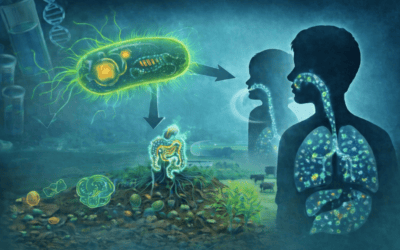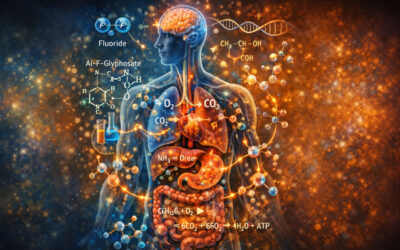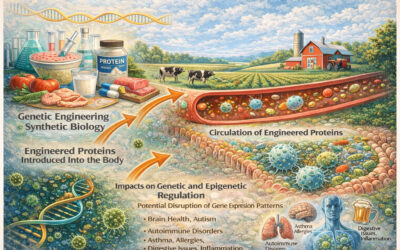Article 7 in the Got REAL Milk Series
Why Synthetic Milks May Be a Bad Idea for Children:
A Pediatrician’s Perspective
A summary for busy parents:
- Synthetic milks lack key bioavailable nutrients found in organic dairy, including healthy fats, essential amino acids, and fat-soluble vitamins which are necessary for brain development and immune function.
- These products are new to the market and have no long-term safety data in children whose developing systems may be more vulnerable to novel proteins and additives. (Think Impossible Burger.)
- Ultra-processed concoctions created through lab-based fermentation, often contain emulsifiers, stabilizers, and artificial flavors associated with gut and metabolic
- For infants and toddlers, synthetic products can’t replicate the complex biology of breast milk or the nutrient-dense profile of whole dairy.
- Precision fermentation, which is a misleading description, creates novel compounds with unknown allergic and immunologic effects on the developing immune system which have not been studied.
- Aggressive marketing with terms like “sustainable” and “clean,” these products face minimal scrutiny or oversight compared to other pediatric nutrition products.
- Despite heavy marketing, the claims are misleading and are far from “natural” or health-promoting.
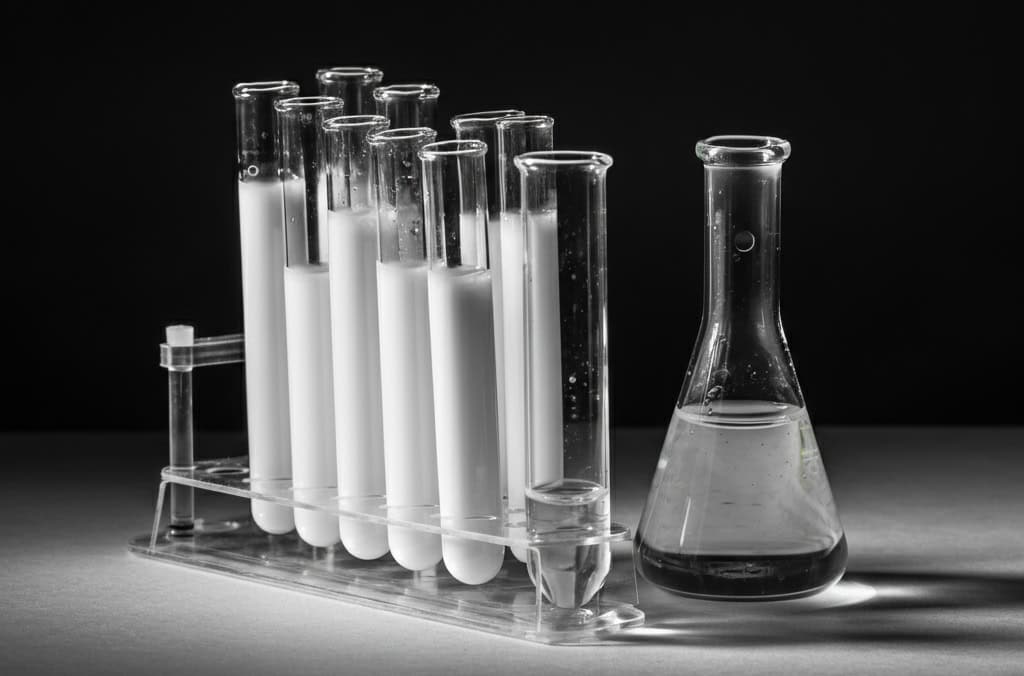
A Brief History of Synthetic Milk: Who’s Behind It and Why It Matters
Synthetic milks emerged from the world of biotech and food labs, appearing on the marketplace around 2019-22, using a marketing description, precision fermentation, to produce dairy-identical-like proteins (casein and whey) without cows. The process involves genetically engineered microbes, typically yeast or fungi, to produce these proteins in fermentation tanks.
Perfect Day is a leader in this space, manufacturing proteins for brands like Bored Cow (developed by Tomorrow Farms). Other players include New Culture, Remilk, and The Every Company. These start-ups are heavily backed by venture capitalists, Silicon Valley investors, and food-techies often with little to zero connection to pediatric health.
The marketing narrative is powerful. Synthetic dairy is pitched as ethical, sustainable, and allergen-friendly. But the motivation is often profit, control of food systems, and IP ownership, not children’s health.
IP Ownership?
IP ownership stands for intellectual property ownership. In the context of synthetic milks, it means that companies own the rights (like patents or proprietary technology) to the synthetic proteins, fermentation processes, or formulations they’ve created. This gives them control over how the product is made, who can use the technology, and how it can be sold which often leads to profits from licensing or exclusive production.
One of the goals behind genetic engineering is the patent. I’ve labeled this the Patent Parade which is Willie Wonka’s Golden Ticket to ownership of the food supply and over-sized profits.
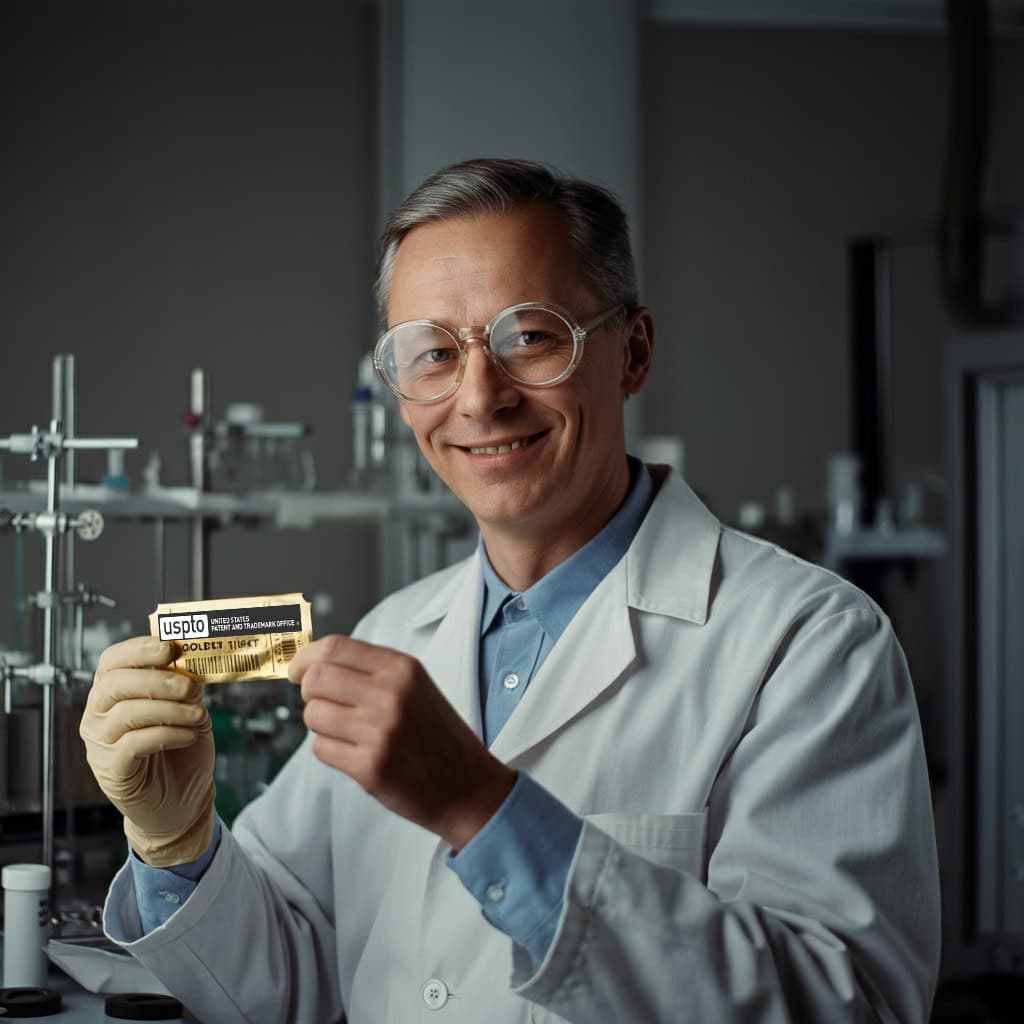
What’s Really in Synthetic Milk? A Pediatrician’s Ingredient Analysis
Despite their clean look and Madison Avenue branding, a closer analysis of the ingredient lists on synthetic milk products reveals that these are far from natural or simple. Water is typically the first and most abundant ingredient, hydration, but zero nutrition unless they are heavily fortified. The key protein, animal-free whey, is made using genetically engineered microbes through “precision fermentation” with unknown long-term effects in children. To mimic the creamy texture of real milk, many of these products utilize refined vegetable oils like sunflower or GMO/pesticide-laden canola, which are high in omega-6 fatty acids and low in the essential fats children need for brain development.
Flavored varieties contain added sugars, which are not good for metabolic health and can cause cavities. Gums and emulsifiers like gellan or guar are included to stabilize texture but negatively impact gut health via disruption of the gut microbiome. Flavors (artificial and labeled as “natural”) pose additional questions about transparency and safety.
While many synthetic milks are fortified to match real milk’s nutrient profile, these added vitamins and minerals aren’t always in forms that are easily absorbed or suitable for children.
In short, synthetic milk is an ultra-processed product with zero testing in young, developing bodies.
From The Clinic Perch
Over my 43 years of clinical practice, I’ve witnessed a shocking increase in gastrointestinal disorders, many from allergic and immunologic causes backed up by confirming reports in the medical literature. The list includes conditions such as chronic constipation, diarrhea, gastrointestinal reflux, food intolerances/sensitivities/allergies, autoimmune diseases (such as Inflammatory Bowel Disease and Crohn’s Disease), gassy/bloating tummies, and abnormal stools.
Of extreme concern is the rising incidence of Autism Spectrum Disorder, now affecting 1 in 12.5 boys in California. In my clinical experience treating children with autism, nearly 90% had concomitant gut issues.
The majority of the gut issues are stemming from the change in our food supply which transitioned to toxic genetically modified crops with their associated pesticides in 1996. My outrage prompted me to write about my patients in my book, What’s Making our Children Sick? in 2017. My second book on how to heal our children with nutrition and homeopathy will be out in 2025.
What Parents Should Know: Smarter Choices for Children’s Milk
Navigating milk choices can be tricky, but here’s a pediatrician’s bottom line:
Look for:
- Whole, minimally processed options
- Healthy fats
- Low or no added sugars
- Fortified calcium, vitamin D, and B12 (for dairy-free kids)
Avoid:
- Synthetic proteins and unknown additives
- Artificial or vague “natural” flavorings
- Highly processed milk substitutes
- Marketing hype that oversells safety or nutritional equivalence
Final Thoughts
Food innovation has its place, but our children deserve time-tested nutrition, not biotech experiments. Our kids are not lab rats! And while we are at it, free the lab rats!
It is not an ideal choice for growing children, nor for that matter, adults.
Choose what’s real. Choose what nourishes. And always advocate for your child’s long-term health over short-term trends.

